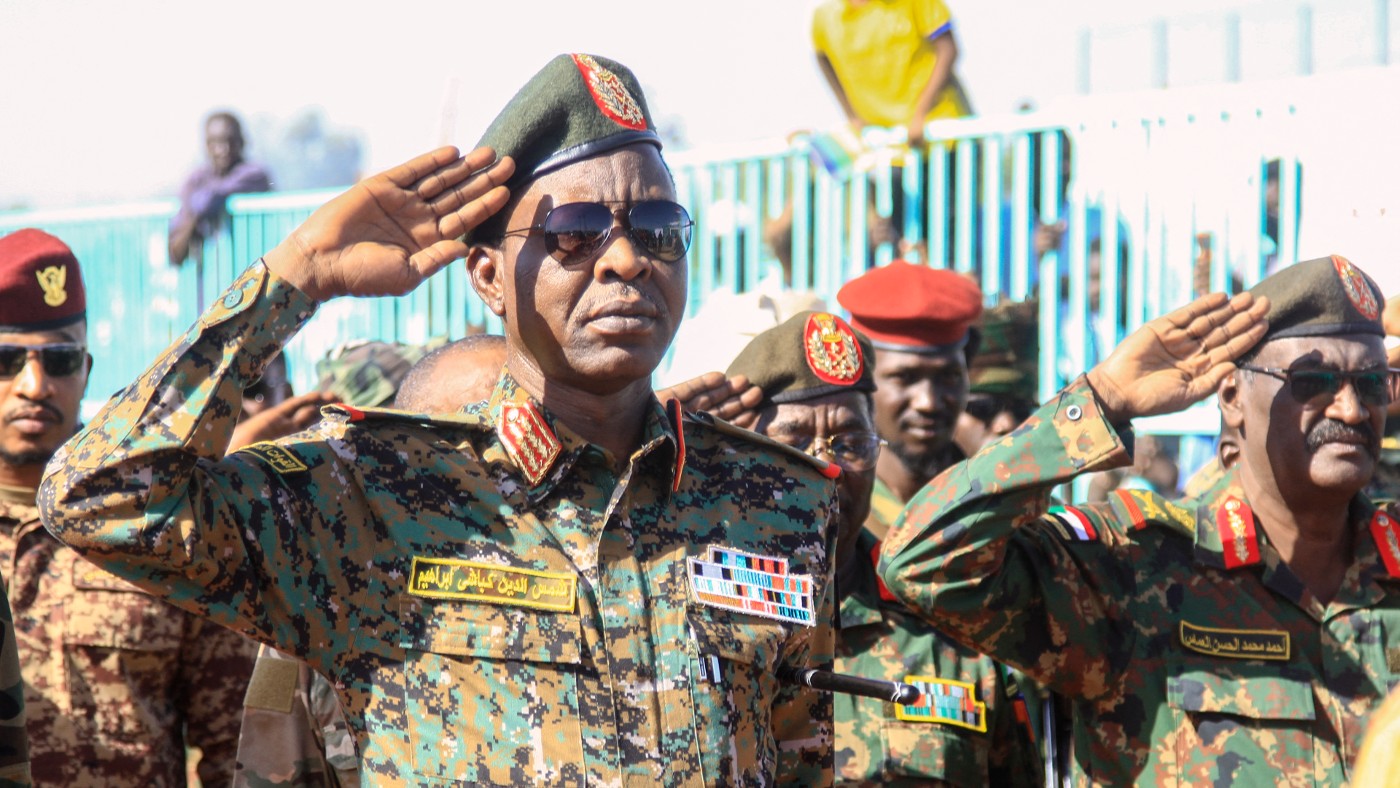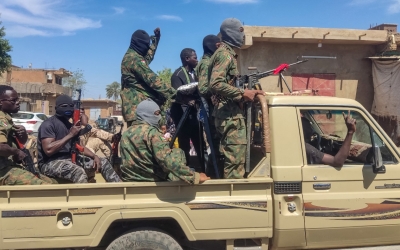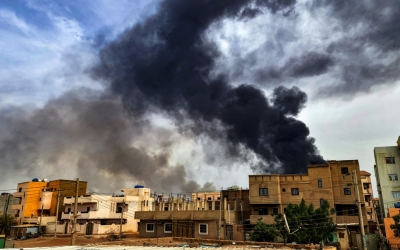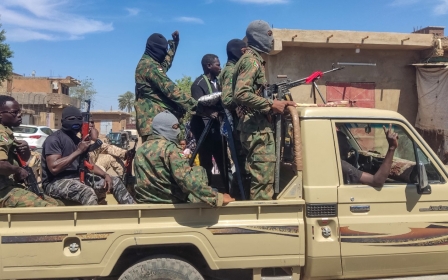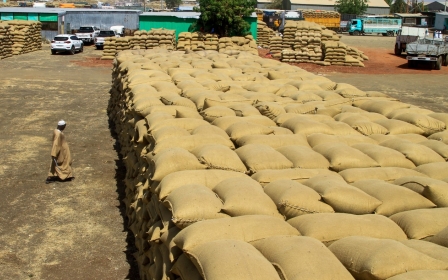What is the future of the Sudanese Armed Forces?
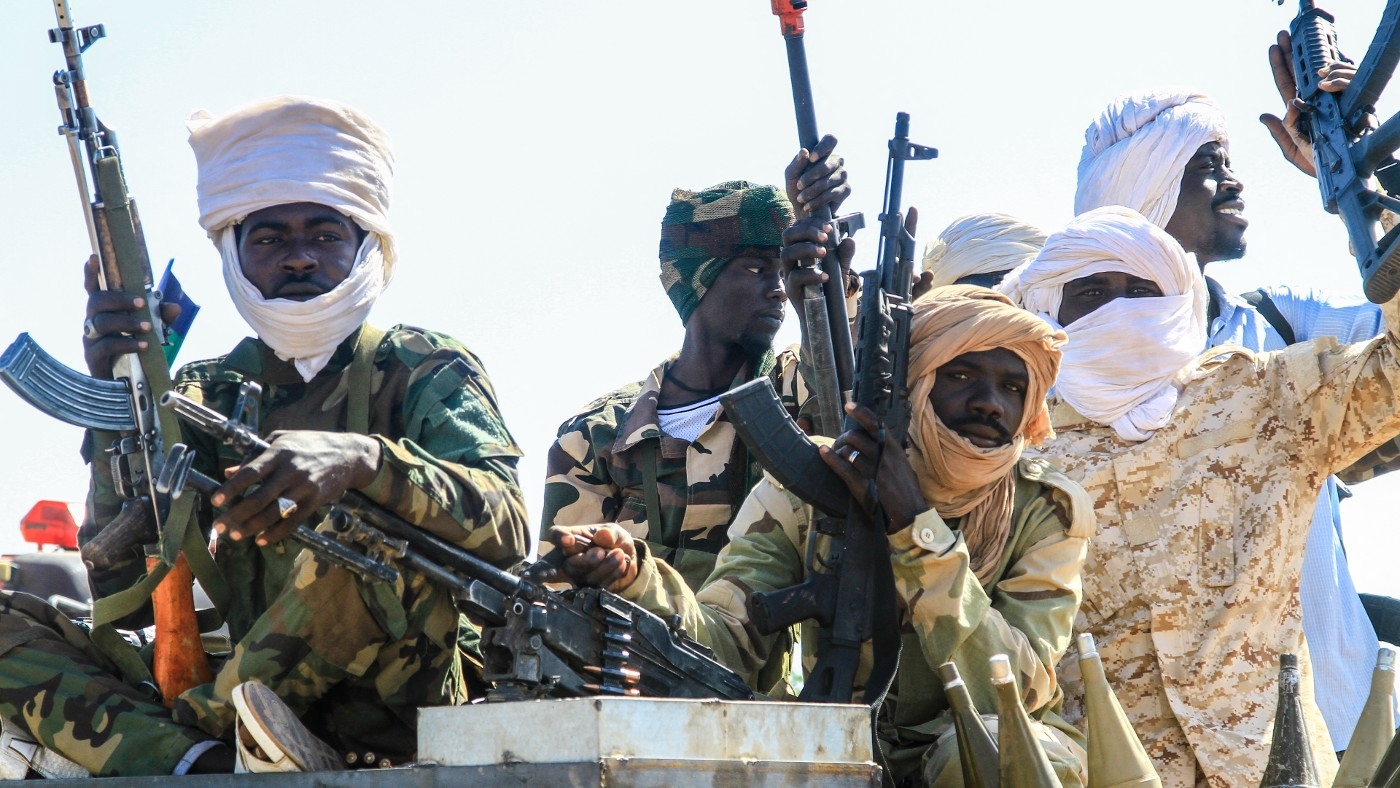
A drone strike that killed at least 12 people in the city of Atbara in northern Sudan on Tuesday night has highlighted divisions and tensions within the Sudanese Armed Forces (SAF), which has been at war with the paramilitary Rapid Support Forces (RSF) for almost a year.
Members of the Al-Bara bin Malik brigade, which is made up of members of a militant group now fighting alongside the army, had finished their Iftar meal when they were attacked.
The brigade, which is aligned with Sudan’s Islamic movement and members of the administration of former autocrat Omar al-Bashir, had never been struck like this outside the capital Khartoum.
The perpetrators of the bombing remain a mystery, with no group coming forward to claim responsibility. Atbara is under army control, with the nearest RSF presence around 200km away.
The RSF has a “Special Task Battalion” capable of launching drone strikes, as it did on 20 March when it targeted an army artillery piece in Shendi, another city in northern Sudan. The army has also worried for months that its areas of control in eastern and northern Sudan could be reached and attacked by RSF drones.
Stay informed with MEE's newsletters
Sign up to get the latest alerts, insights and analysis, starting with Turkey Unpacked
But the absence of a strong response from the army – and the fact that the attack happened deep into army territory – has given rise to a theory that Al-Bara bin Malik Brigade fighters were being targeted by people they are nominally fighting alongside.
There have even been reports – such as this one in the Sudan War Monitor - that the attack was a “false flag operation” carried out by the ardently pro-war brigade on its own fighters.
“I don’t buy the false flag theory,” one western military analyst, who cannot be named because he is working directly on the war, told Middle East Eye. “But the way SAF insiders talk to me suggests some faction of SAF was involved.
“One scenario, for example, is that the drones did come from the RSF but were ‘tolerated’ by certain elements of the SAF, who disagree with popular mobilisation.”
Army of opposites
Almost a year into the war, which has displaced over eight million people and led to the deaths of tens of thousands more, this popular mobilisation has seen the Sudanese Armed Forces morph into an outfit that contains fighters from hugely diverging ideological backgrounds and from across the whole country.
These people have come together to fight the RSF, which has its power base in Darfur, in western Sudan, and which is accused of a host of atrocities, including carrying out racially motivated massacres targeting the Black African Masalit group.
'There is an incentive to keep the war going'
- Kholood Khair, Sudanese analyst
Along with the rank and file, the army now has members of resistance committees - the nationwide collection of local groups that have been at the forefront of Sudan’s democratic revolution - and other radical youth organisations, such as Anger Without Borders and Kings of Clashes, fighting alongside groups like the Al-Bara bin Malik Brigade, their ideological opposites.
More recently, rebel groups from across Darfur, including signatories to the Juba agreement of 2020, have joined the army, alongside thousands of other fighters from Blue Nile state, eastern Sudan and South Kordofan.
As well as Al-Bara bin Malik, other groups affiliated with the Sudanese Islamic Movement (SIM) are present, and many officers were part of – or connected to – the National Congress Party (NCP) of Bashir, which was preceded by the National Islamic Front.
Bashir ruled Sudan from 1989 until 2019, when he was removed by army general Abdul Fattah al-Burhan and RSF leader Mohamed Hamdan Dagalo, better known as Hemeti, in response to a popular revolution demanding his exit. Both Burhan and Hemeti had been close to Bashir.
"For the most part when people are talking about 'Islamist' influence in Sudan, they're really talking about that collection of former regime elements, the 'kayzan' as they're called in Sudan, which traditionally held a lot of indirect power under the Bashir regime," Cameron Hudson, a former CIA analyst and fellow at the CSIS Africa Program, told MEE.
"There's a fear that these forces are very much still active and alive in the background of the army, and that they are staging a return for themselves," Hudson said, while adding that he didn't think there was a "single overarching command or co-ordinating body".
This question of influence and control is a perennial one in Sudan, as well as being a key component of RSF messaging, which positions itself - with the help of western communications experts and financing from the United Arab Emirates, its main patron, as a democratic force intent on keeping Bashir's people from regaining power.
With so many different ideas and motivations at play, the future and composition of the Sudanese Armed Forces is uncertain – and up for grabs.
It is also a key factor in discreet ongoing ceasefire negotiations taking place in Cairo and then US and Saudi-brokered talks scheduled for Jeddah on 18 April, with some parts of the army more willing to strike a deal with the RSF than others.
'The US special envoy has said talks will begin in Jeddah on 18 April. But I think SAF is not unified and there is no centre to make the negotiation decision'
- Youssef Ezzat, RSF adviser
Youssef Ezzat, Hemeti's political adviser, told MEE that the RSF does not have a delegation in Cairo. "We didn't receive any invitation," he said. "The US special envoy has said talks will begin in Jeddah on 18 April. But I think SAF is not unified and there is no centre to make the negotiation decision," Ezzat said.
"They need a big victory to sit down to negotiate and that may not come soon - they may lose more," the RSF adviser told MEE.
Shams al-Din Khabbashi, the army's deputy commander, is believed to be more willing to negotiate, while Yasser al-Atta, another senior general, is intent on continuing the fight. The head of Egyptian intelligence was recently in Port Sudan pushing army commanders to make progress with talks.
"I think that the army will hold this coalition of groups and officers together with great difficulty," Kholood Khair, a Sudanese analyst and founding director of think tank Confluence Advisory, told Middle East Eye.
"One of the motivations for this war was the RSF's desire to avoid integration into the army. It was loyal to the army and then it broke away because it wanted to angle for a larger piece of the pie," said Khair, who emphasised the appeal and lure of Sudan's war economy, which has seen both sides profit from a diffuse network of illicit trade.
Middle East Eye has previously reported on the "Dagalo" markets named after Hemeti, which sell goods looted in war, and on the smuggling business that fighters on both sides are profiting. "There is an incentive to keep the war going," Khair said.
Graduation day
Army commanders, buoyed by victories in Khartoum, its twin city Omdurman and advances on other fronts, have become more defiant and confident in their addresses to soldiers and the Sudanese people.
At an address given to graduating forces from the Sudan Liberation Movement headed by Minni Minnawi, a warlord turned governor of Darfur, Khabbashi, who is also a member of the Sudanese sovereignty council, said that rebel forces had agreed to be fully integrated into the army.
Khabbashi heralded the unity of the army, while Minnawi, who the RSF no longer consider governor of Darfur, said that his men were fighting a “war for dignity and to liberate our country”.
Minnawi referred to the war as an “existential one” – a term used by two Sudanese officials aligned to the army in an interview with Middle East Eye. Both officials pointed to the large numbers of foreign fighters present in the RSF, saying that there were almost 50,000 non-Sudanese fighters now inside the country, adding that the army truly reflected the character of the nation.
A rebel movement source, who asked not to be named, said that thousands of troops from the Darfuri groups including Minnawi’s SLM, the Justice and Equality Movement (JEM), Mustafa Tambour’s SLM faction and other Masalit self-defence forces had trained in eastern Sudan and already joined the army in its fight against the RSF in Khartoum.
“Thousands of fighters from Darfur armed movements have been trained by the SAF in Kassala, Gedaref and Gebeit areas, and even Eritrean military experts have helped train them in urban warfare,” the source told MEE.
“Part of these forces have already participated in the battles in Omdurman to expel the RSF,” he said.
More rebel groups join army
New battalions from JEM, which is headed by current finance minister Gibril Ibrahim, graduated last month in Kassala state in a graduation ceremony attended by army chief Burhan.
In a video shared on social media, Musa Hilal, an enemy of Hemeti’s who was, like the RSF chief, a former Janjaweed leader, declared that his men were ready to fight alongside the army.
'This war is a scream for the dignity of the Sudanese people, so the majority of the Sudanese people are currently supporting SAF'
- Sudanese expert
“I welcome your return from Libya, I know that you have suffered for a long time because of the bad things that have been done by some criminals," Hilal, who was arrested in 2017 then released from prison in 2021, told his forces. "It’s time to fight for your dignity and the dignity of the entire country against the mercenaries,” he said, referring to the RSF.
The RSF has responded by attacking rebel movements across different parts of Darfur in the last few days, killing and arresting soldiers and civilians believed to be close to the rebels.
Alsadig Alnur, spokesman of the SLM-Minnawi faction, told MEE that the RSF had attacked the Malit locality, about 60kms north of el-Fasher, the capital of North Darfur. He said the paramilitary had abducted some soldiers and civilians, taking them as hostages.
Alnur added that RSF-allied militias had attacked the Labado area of East Darfur state, killing two people, looting the area and displacing thousands. “By committing these actions, the RSF is intentionally trying to blackmail the rebel movements, including the SLM/Minawi faction,” he said.
Another faction of the SLM, headed by Abdul Wahid Alnur, has accused the RSF of attacking its forces in Darfur, despite its stated neutrality in the war.
Part of the SLM-AW, led by Abdul Wahid Alnur, which is led by a general known as “Kargakola”, has engaged in fighting against the RSF in Central Darfur state. Other Darfuri rebel groups have similarly claimed to have been attacked by the RSF.
The paramilitary group has admitted attacking rebel forces, but said this was because they were supporting the army’s military base in el-Fasher.
“We noticed that the rebel movements have a lot of movements in North Darfur state and around the city of el-Fasher. We also intercepted convoys of supply accompanied by the rebel movements which was going to assist the SAF military base in el-Fasher,” the RSF said in statement.
For Minnawi, the incorporation of rebel fighters into the SAF is the first step towards the formation of a new national army.
Al-Atta, the army general who is also a member of the sovereignty council, said that the SAF is still open to the entire Sudanese population, including resistance committees, Islamists, rebel movements and anyone else.
“This war is a scream for the dignity of the Sudanese people, so the majority of the Sudanese people are currently supporting SAF due to the well-known and wide violations and insults to civilians committed by the RSF," one Sudanese expert, who did not wish to be named, told MEE.
Salah Aldoma, a political analyst, disagreed. He said the addition of Darfuri rebels would not make much difference politically or militarily.
“Let me also stress here that the formation of the new national and professional army can’t happen now and under the current military government," he told MEE.
Middle East Eye delivers independent and unrivalled coverage and analysis of the Middle East, North Africa and beyond. To learn more about republishing this content and the associated fees, please fill out this form. More about MEE can be found here.
